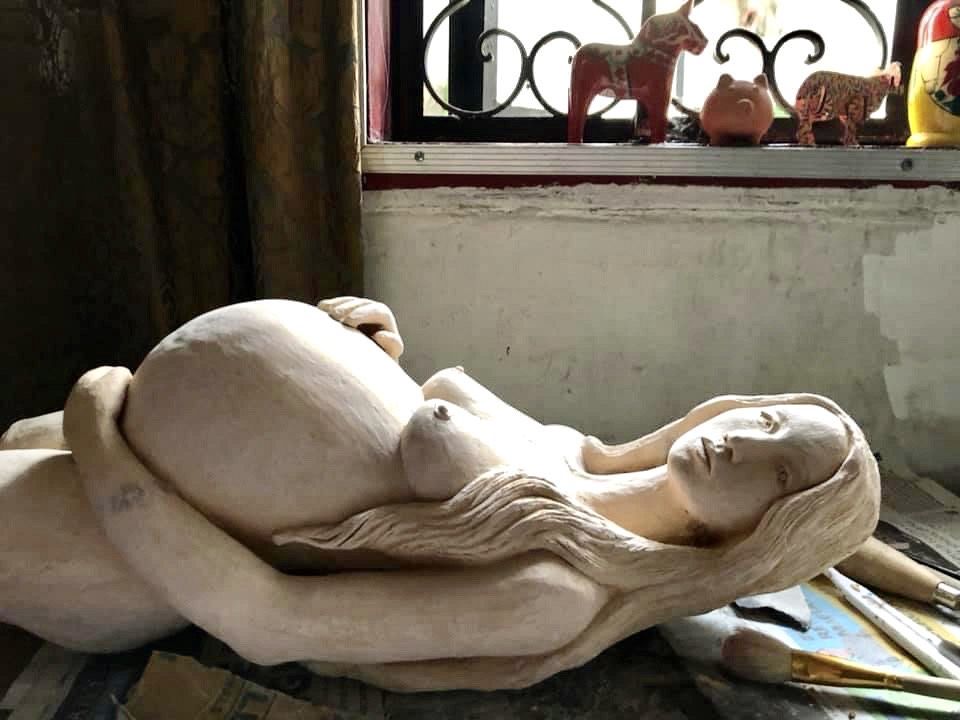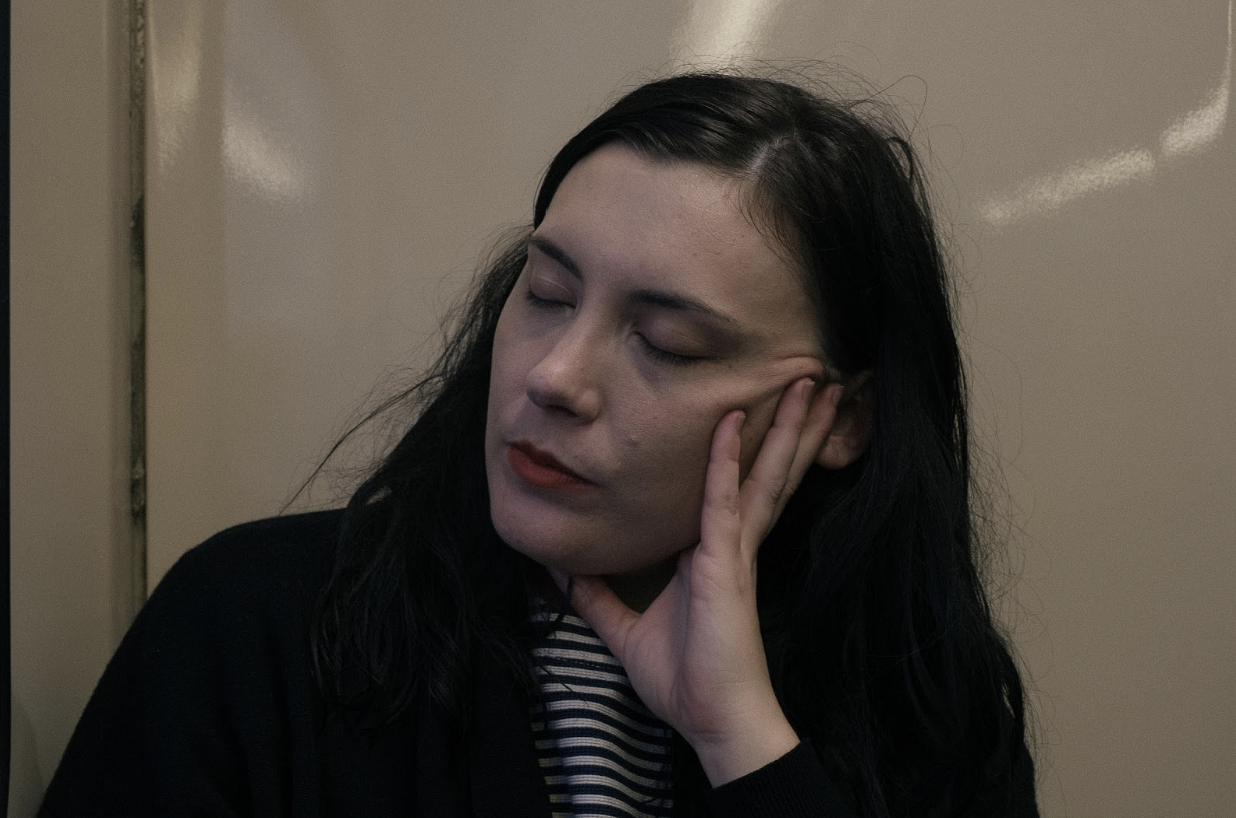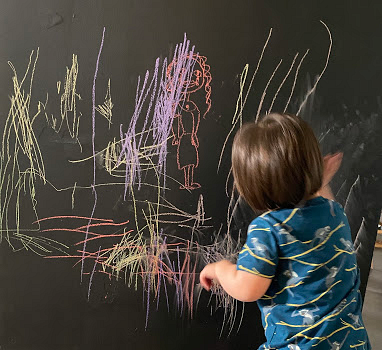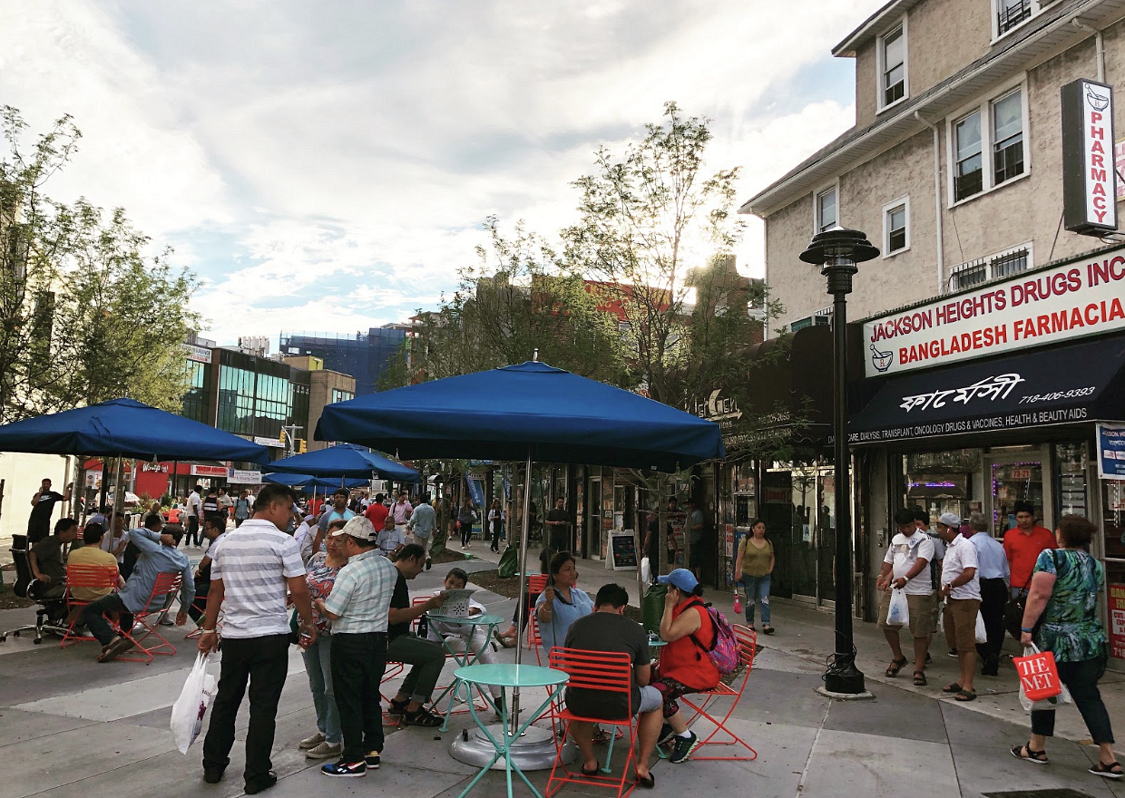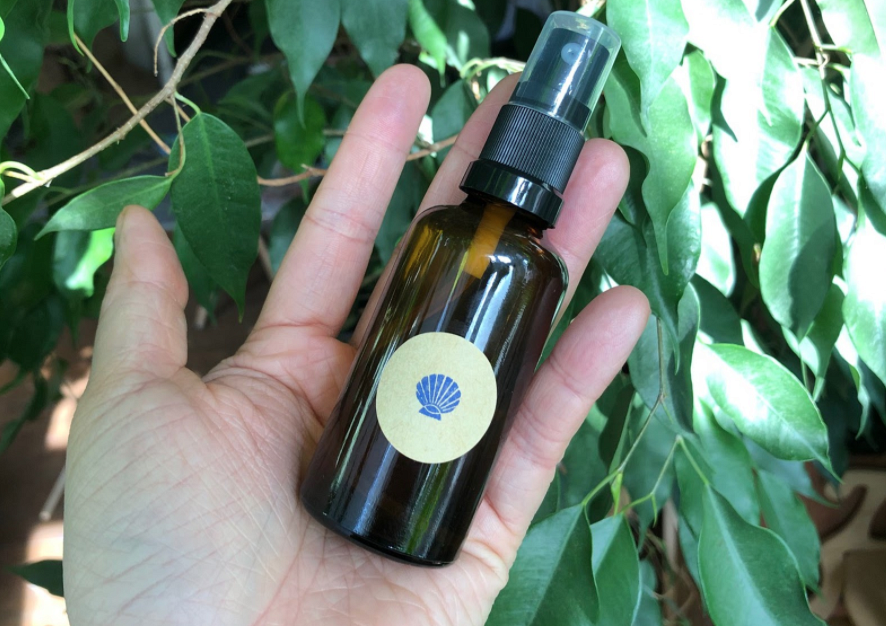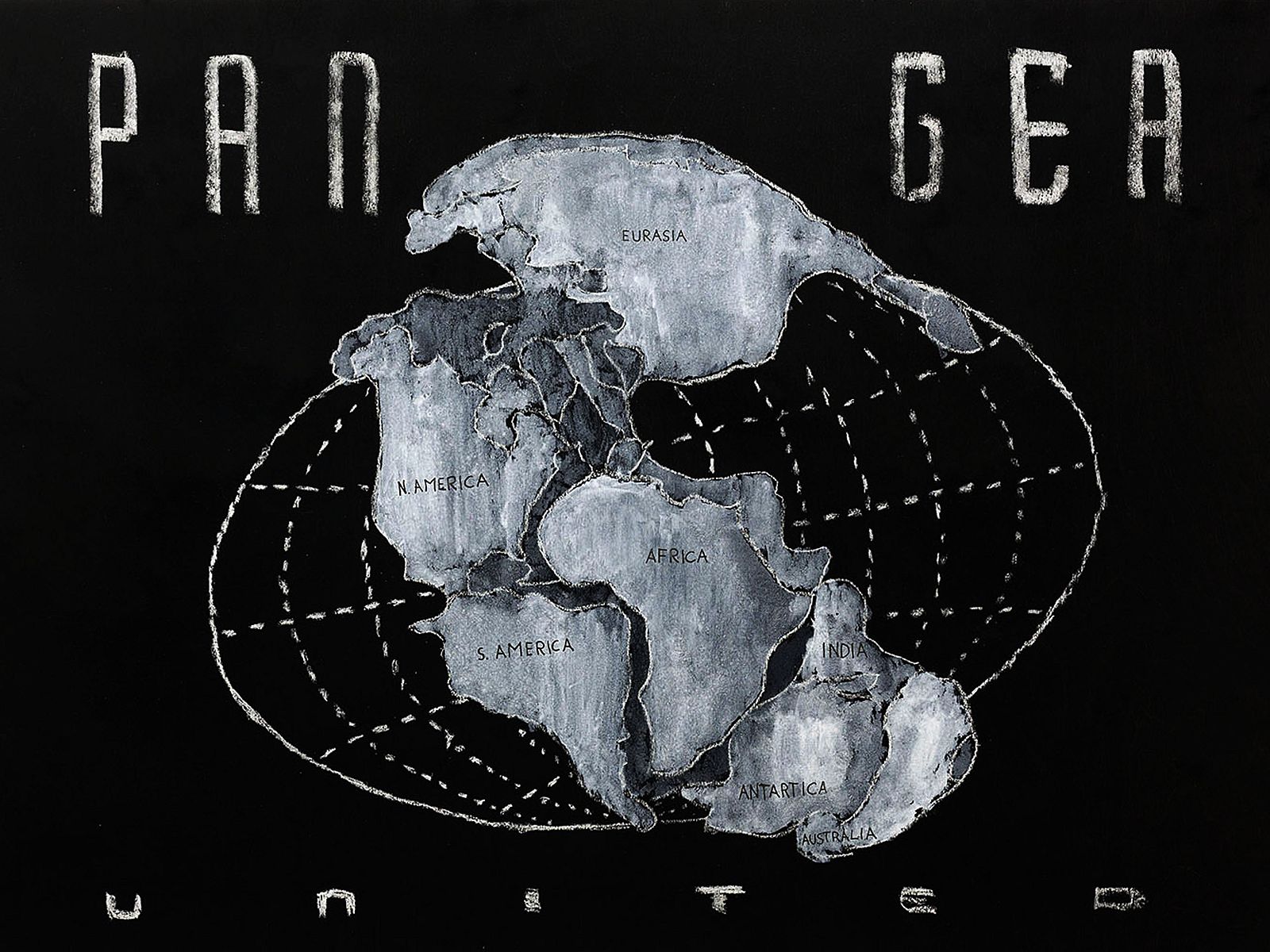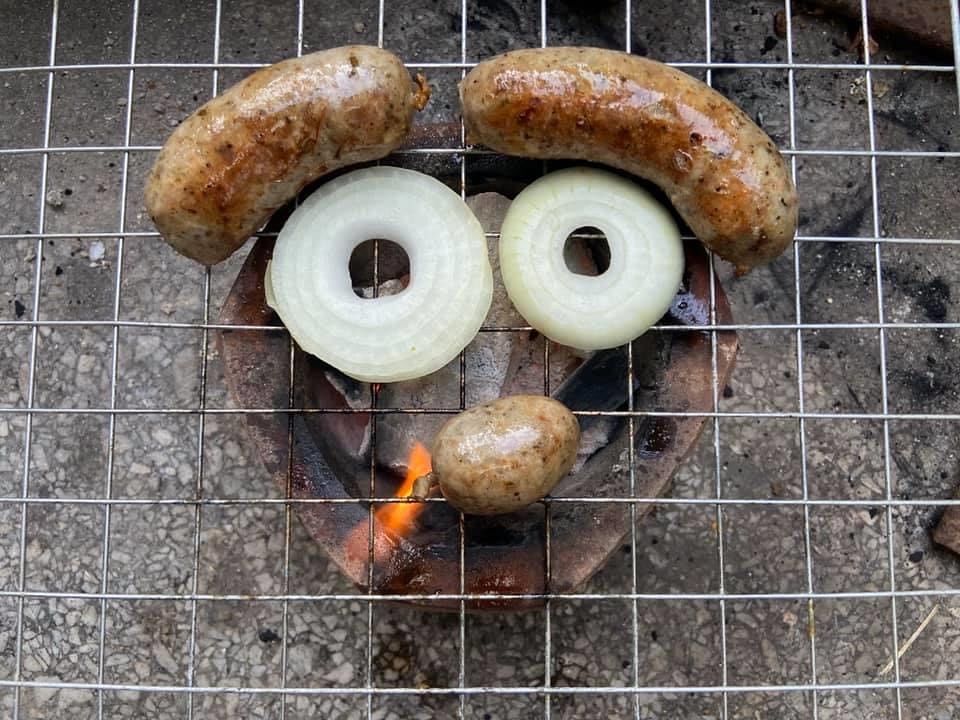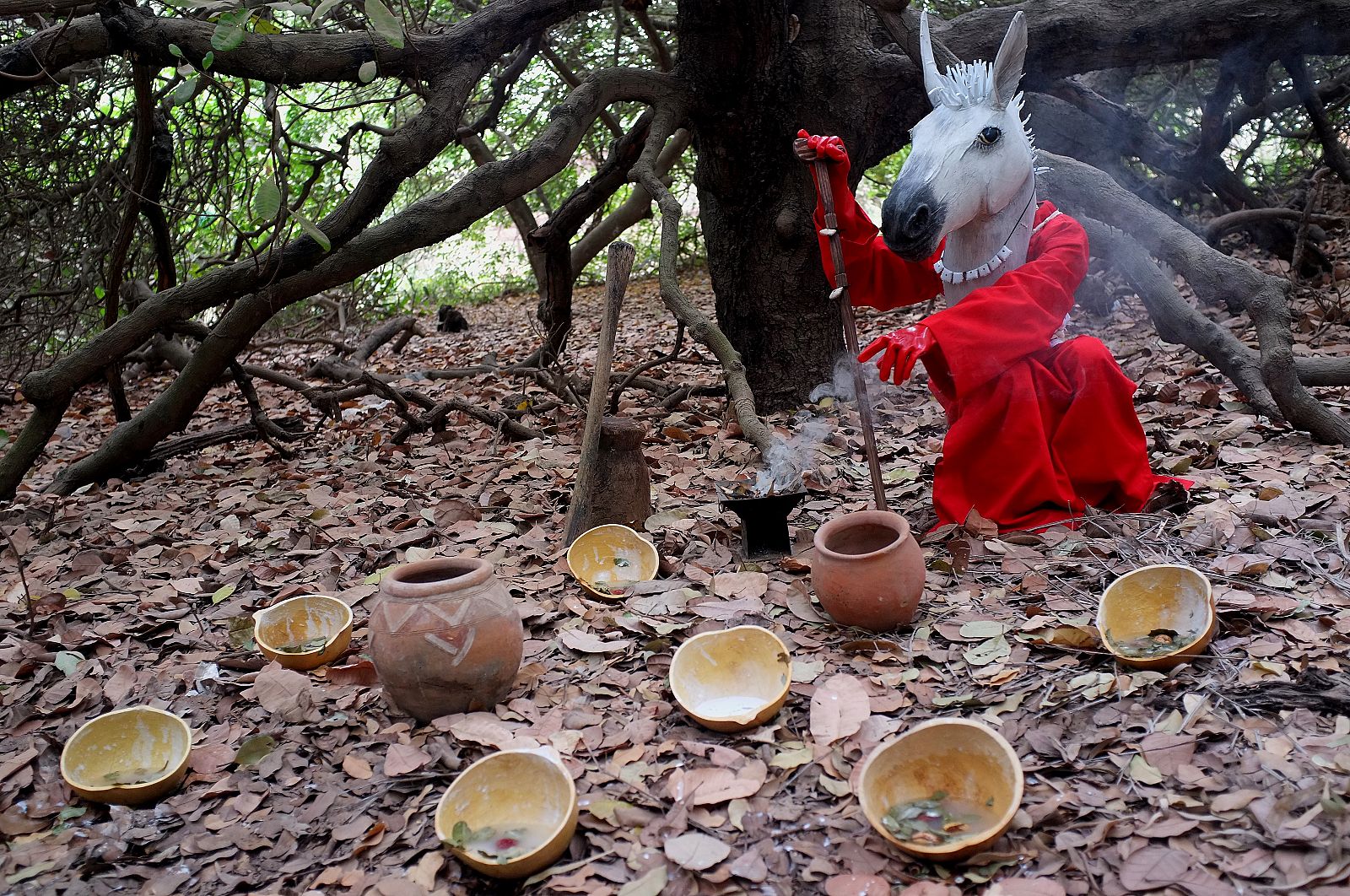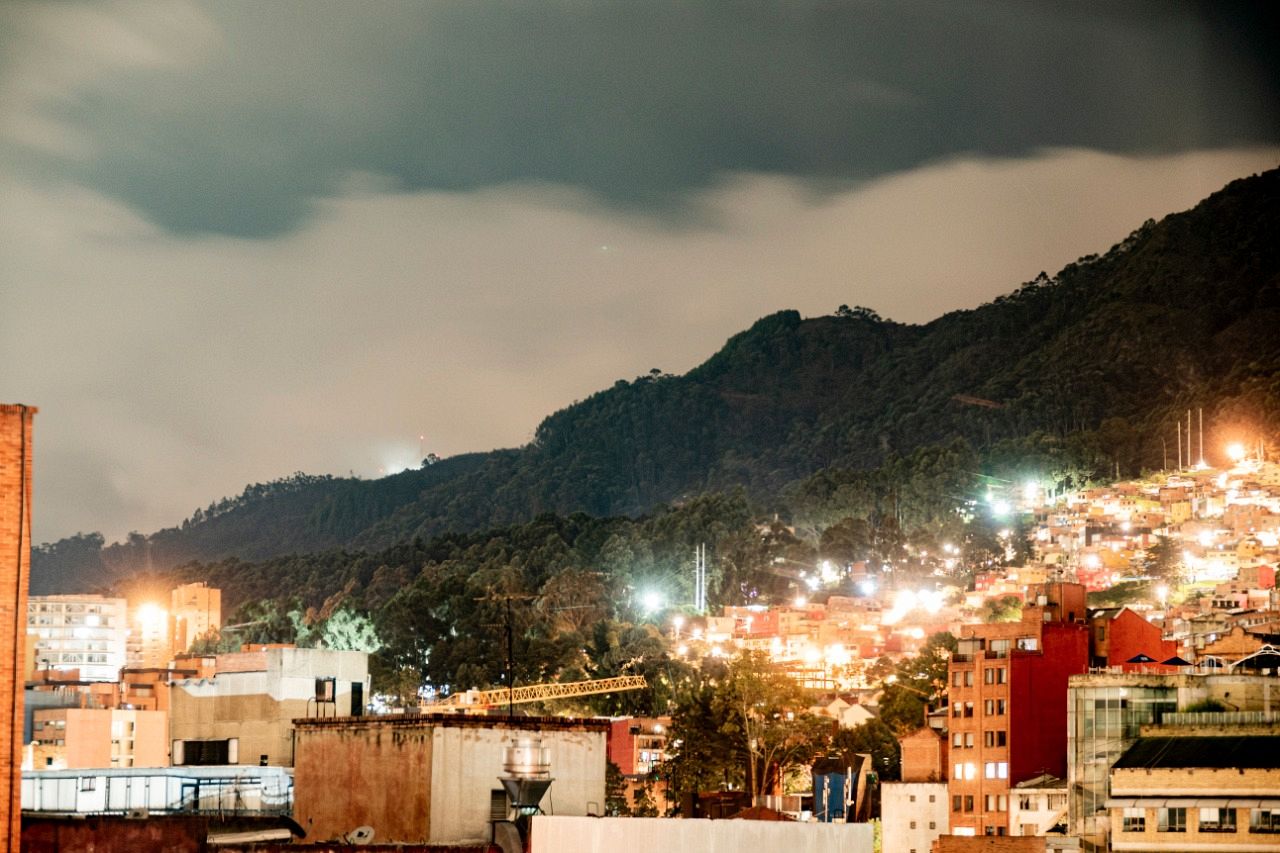Reports from the Field are perspectives from curators from around the world, who are alumni of the Curatorial Intensive, ICI's professional development program for emerging curators. The commissioned texts are reflections on the impact of the global pandemic on their lives, ways of working, their communities, and how they are adapting as a response.
Vanini Belarmino, Alumna of the Curatorial Intensive Fall '12, writes from Singapore. To read and download the PDF version, click here.

“Study for a Pregnant Nude” Kiri Dalena, Terracotta, 2020, Image courtesy of artist.
I had 20/20 vision of how I wanted my year to pan out. Every calendar was laid out: my work comes in perfectly color-coded boxes to remind our team, we ought to work most weekends from January to March, which is reasserted by a new cycle of programs to mark the beginning of the fiscal year from April 1 onwards. Most artists have been contracted. For those coming from abroad, flights and hotels have been booked with schedules finalized all the way until the first quarter of 2021. Even the surprise birthday cake for each of my team members has been noted in my calendar with a script running in my head how this could unfold.
I had saved and calculated all my annual leaves and overtime to fulfil the other side of my life. Personal activities that involve furnishing the flat, sorting out of the weekly menu, planning the holidays with my partner, family reunions to celebrate milestones such as 50th, 60th and 80th birthdays, taking advanced studies in performance curation, writing an essay for a book, investing on some curatorial research here and there, maybe even enrolling in a special culinary course while finding suitable well-being classes like pilates or yoga. I had it all planned for 2020. I can even say forward-looking until 2021 to 2022.
Like my work calendar at the Gallery, my life goes into this planned cycle accommodating little surprises along the way.
Everything was working out fine until . . . well, the news about coronavirus slowly concealed itself and made its presence felt in the city where I live in, Singapore. As this spiked ridden feisty disrupting menace crown virus meanders freely in the air, hops on to someone’s system, physically, psychologically and emotionally, it enters our workplace and homes whether we like it or not. If it’s not in your body, it pervades your mind through the news, social media or even your immediate surroundings. Through the lens of those closest to me who had close encounters with the uninvited guest, I began to feel the intensity of its invasiveness.
As I continued to go about my work routine in February, news and government announcements gradually shifted its DORSON level (Disease Outbreak Response System Condition) from the color yellow to orange. At this point, most things remained business as usual. Although partially disturbed by the lurking idea that this virus could eventually rule over our lives, take over my body, my loved ones, my friends across the globe or my colleagues, by unknowingly acquiring it from a public event, from meeting friends at dinner, grocery shopping or en route to work, I found refuge and comfort from following Prime Minister Lee Hsien Loong’s Facebook and Instagram accounts. His calm face and manner gave me and still gives me an assurance that all is fine, and it will be fine. I am safe. We are safe at home. Lucky to be in Singapore. To my colleague’s amusement, one day I began reciting “we have to be resilient.”
On the first weekend of DORSON Orange, our team for artistic programs began the temperature-taking and travel declaration exercise at the entrance of the Gallery. As fewer people than usual entered the door and attended our special offering on Somatic Movement workshop-tour led by Singaporean dancer/life coach, Vincent Yong, a combined feeling of nostalgia and pride entered me. This one-and-a-half hour session—which calls our participants (visitors) to be in contact with oneself and their bodies and to reflect on the connection between their body and the artwork, while encouraging ways of contact with others—maintained its form, though with a slightly different approach to the notion of touch and connection.
The week that followed proved to be more promising. As layers of guidelines were progressively introduced and implemented, I noticed that people were turning up as per usual to one of our special in-Gallery performances. Aptly titled in this new world, a devised theatre piece by Cake Theatre, directed by Natalie Hennedige, drawn from selected poems written by Madeleine Lee inspired by works from our national collection, attracted an impressively sizable crowd. They seemed to already be hungry for art, only in the second week of curling up under the darker shade of sunset. What privilege it is to serve our audience, our public, our fellow human beings through the gift of art. Note that the two programs mentioned above were realized before enhanced safe distancing measures were implemented.
The presence of our audiences gave me some confidence to assure artist Maria Hassabi on the third week of February that the plans for the Southeast Asian premiere of her work for TOGETHER for Performing Spaces 2020 can still be realized. The virus, which was initially known to be present in this part of the world, took a speedy route to the US and Europe. In less than a week, both of us had to acknowledge that we had to adjust to the unpleasant realities presented by COVID-19. Alas, after more than a year of discussion and preparation, our team momentarily accepted to move the marquee that bears a delicate image of Maria’s show to our basement.
This gesture felt akin to bringing the curtain down to close the theatre without even having the chance to raise it and share the experience with our audience. Through performance, which has been key to the Gallery’s artistic and exhibition-related programs, we have continuously introduced original artistic content to our audiences, offering multiple ways of seeing, experiencing and perceiving our exhibitions. The range of presentations varies from historical re-stagings, performance-based responses and participatory works, which our team painstakingly co-develops with artists in the fields of dance, theatre, music, literature, fashion and new media. These interventions—which are aimed at establishing human connections from the simplest form of encouraging eye contact to enabling people to be together in one space—have become integral to the fabric of our storytelling. They take place in the intimacy of our galleries to unexpected encounters within the public circulation spaces.
Even through these small initiatives, intimate performances, I think we are able to offer a glimmer of hope and fulfil our role of humanising even now during the less humane presence of this uninvited guest, COVID-19.
Amidst all these, I could not be prouder of my younger colleagues who appear to be unfazed by the situation and have continued to run our programmes as planned. Somehow, the ethos of our work felt more potent than ever: “humanising” the artworks and our exhibitions. There is a reason we are here. There is a reason we do our jobs. There is a reason we are needed in the museum. There is a reason the museum and art exist, so we stand tall and brave to remain open.
While continuously doing the work and repeatedly washing my hands at any given chance, stringent measures were being implemented day by day, week by week, I began actively reaching out to friends in Manila, Berlin, New York, Amsterdam, London, Paris, Vienna, Athens, Bergamo, Sydney, Bucharest, Edinburgh, Bangkok and so on. It is like I’ve missed each one of them so much in this lifetime. Yet, maintaining a sense of gratitude for having taken the time for a quick ‘catch-up’ last time we met in person. My friends and I began calling each other as opposed to just texting. In the third or fourth week of February, only a handful of my friends understood the fear I had of COVID-19 and its impact on our lives, our relationships, especially that we are physically worlds apart. Like many people nowadays, I have browsed through many photographs pre-social media era, iCloud library, past and unrealized art projects. I began an exercise of remotely organizing the archive of curatorial projects and articles together with one of my best friends in New York, just so we could intentionally say hi to one another before I go to bed in Singapore and as he wakes up in the East Village.
Having a sense of gratitude for life’s kindness and giving me the privilege of togetherness even with loved ones and friends from a close distance, working from home, having a job, having shelter above my head, enough food to eat, I attempt to fulfill some good deeds. They could be as minute as finishing the food on my plate, watering my plants and being kind to myself so I could be kinder to others, being fully present at work (virtually) appear on top of my accomplishment list. I feel like a child again. I could hear the voices of my late grandparents who used to remind me to be thankful for the food and everything else that I have. In their moments of resignation dealing with a mischievous child, they would utter; she’d never know what it’s like to live through war. Gratitude is holding me up.
As the guidelines matured between March and April, from checking travellers from specific countries or regions to banning entry to Singapore; from the enforcement of social to safe distancing measures; from the deferment of gatherings of more than a thousand people, to those of more than a hundred and eventually just 10; from the implementation of split team schedules at the office to full work from home arrangements; from wear mask only when sick, to wear a mask when outside; to the observance of the circuit breaker measures and the closure of non-essential services from April 7.
I think I might have been working from home for over a month now. I am beginning to miss my colleagues and going to work. I look forward to Tuesdays where I get camera time with my team. Every day, I wake up like I am physically going to work. I turn on my company computer shortly before 9 a.m. attend meetings online, review the online plans, adjust the plans, attend meetings online again, improve the plans, write emails, think, pause, repeat. End the day by 7 or 8 p.m. by shutting the computer down to focus on my home chores. Hey, this could go on for a while but I’ll continue to do what I ‘m called to do in my little way.
As a propagator and champion of the unknown, untested and live interventions with the hope of connecting people,this COVID-19 has unkindly stretched and unpacked what the power of the invisible means. Just the same, I remain a firm believer that such power resides in each one of us. Since life has led me to this world of art, working with artists, a group of young people in my team and reaching out to people, I will continue to do so.
During this pregnant pause that we all share, where the weight seems heavier than carrying a baby inside the ballooning womb deters us from running on our usual phase with that feeling of the stubborn yet to be born child kicking inside the belly, I hope each one of us would find the balance in reflecting how rich our lives are because we live not only for ourselves but most importantly for many others.
